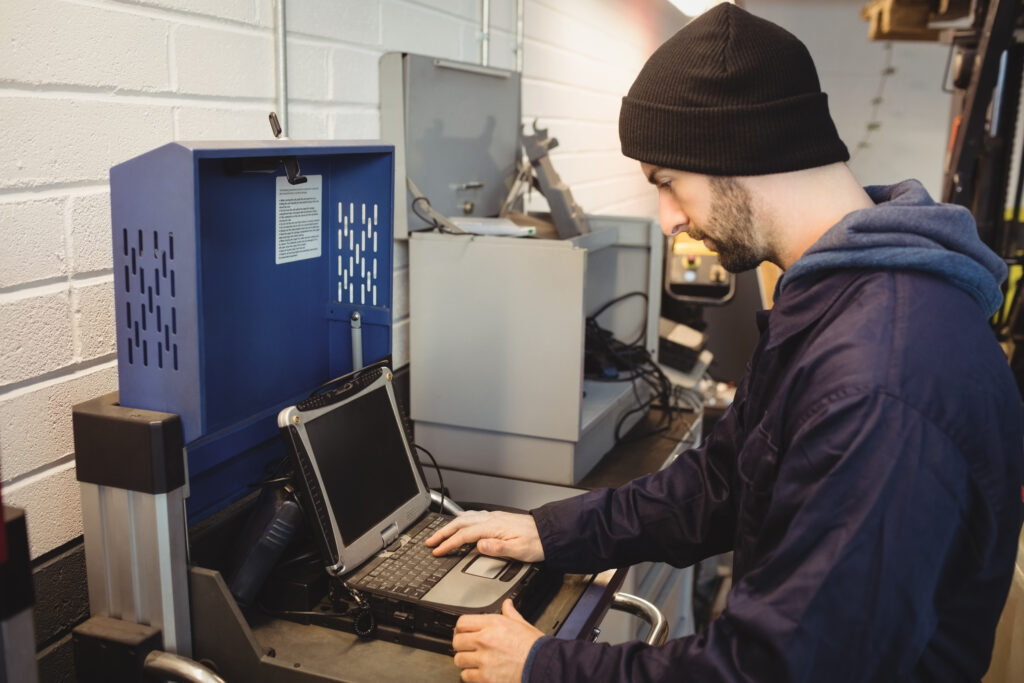
Industrial computers have become essential components of modern manufacturing and production processes, providing the robust and reliable performance necessary to keep factories and facilities running smoothly. However, the life expectancy of these devices can be a significant concern, as they often reach their end-of-life prematurely, resulting in costly replacements and disruptions to operations. This issue is compounded by the rapid technological advancements that render older equipment obsolete, necessitating frequent updates and upgrades.
But what if there were computers designed to extend their lifespan, ensuring continued productivity and minimizing the financial and logistical burdens associated with replacement? The concept of is not new, as manufacturers have been developing solutions to address these challenges. These advanced computers are engineered to withstand harsh environments, endure heavy use, and maintain performance over extended periods, thereby reducing the need for frequent replacements. By leveraging innovative hardware and software designs, these computers can provide years of reliable service, reducing downtime and increasing overall efficiency.
The development of is crucial for industries where reliability and longevity are paramount, such as manufacturing, automotive, and energy production. These industries rely heavily on industrial computers to control and monitor complex processes, and any disruption in their operations can be costly and detrimental. By focusing on creating systems that can withstand the rigors of industrial environments and maintain performance over the long term, manufacturers can help these industries thrive. The future of industrial computing lies in the creation of versatile, durable, and dependable machines that can adapt to the ever-evolving needs of modern manufacturing.
When considering the longevity of industrial computers, many factors come into play. From the initial purchase to the eventual end-of-life phase, every decision along the way has the potential to impact the lifespan of these critical devices. In this article, we will delve into the world of industrial hardware and software solutions, exploring the key considerations for achieving extended computer lifespans and the benefits that come with it.
Understanding Industrial Hardware and Software Solutions
Industrial hardware and software solutions are designed to meet the specific demands of industrial environments. These solutions are built to withstand harsh conditions, such as extreme temperatures, humidity, and vibrations, which can significantly shorten the lifespan of ordinary computers. By choosing industrial-grade equipment, organizations can ensure that their computing infrastructure remains reliable and operational for a longer period.
Key Considerations in Industrial Hardware and Software Solutions
- Durability and Reliability: Industrial hardware is designed to be rugged and durable, able to withstand the rigors of industrial settings. Components such as solid-state drives (SSDs), which are more resilient to shock and vibrations, are often preferred over traditional hard disk drives (HDDs).
- Environmental Adaptability: Industrial computers are built to operate in a wide range of temperatures and humidity levels, ensuring that they can function effectively even in environments where traditional computers would fail. This adaptability is crucial for industries such as manufacturing, oil and gas, and food processing, where equipment must perform reliably in various conditions.
- Security and Data Protection: Industrial computers must be secure and protected from cyber threats. Many solutions incorporate advanced security features, such as firewalls, intrusion detection systems, and encryption, to safeguard data and prevent unauthorized access.
- Upgrade and Maintenance Capabilities: Industrial computers are designed to be easily upgradable and maintainable. This ensures that they can continue to meet evolving industrial demands without the need for frequent replacements, which would incur significant costs and downtime.
Benefits of Extended Lifespan
- Cost Savings: By extending the lifespan of industrial computers, organizations can avoid the costs associated with frequent replacements. This includes not only the initial purchase cost but also the cost of integration, training, and disposal of the old equipment.
- Reduced Downtime: With industrial computers that are designed to last longer, there is less need for frequent repairs or replacements. This reduces downtime, ensuring that critical industrial processes continue to function smoothly and efficiently.
- Environmental Sustainability: Extending the lifespan of industrial computers contributes to a more sustainable business model. The reduction in e-waste and the associated environmental impact can be significant, making it a crucial consideration for companies looking to minimize their carbon footprint.
The Future of Industrial Computers
As the industrial sector continues to evolve, the demand for advanced computing solutions will only increase. The need for computers that can operate reliably and efficiently in harsh environments, while also providing robust security and upgrade capabilities, will become even more critical. The future of industrial computing is likely to see advancements in areas such as:
- Artificial Intelligence (AI) and Machine Learning (ML) Integration: AI and ML will play an increasingly important role in industrial processes, with computers becoming more intelligent and capable of autonomously optimizing operations.
- Edge Computing: As data becomes more decentralized, edge computing will become essential for processing data at the source, reducing latency and improving real-time decision-making.
- Cloud Integration: Cloud-based solutions will continue to play a significant role in industrial computing, offering scalability, flexibility, and cost-effectiveness.
Final Thought
The choice of industrial computers can significantly impact the longevity and efficiency of industrial operations. By selecting hardware and software solutions that are designed to meet the demands of industrial environments, organizations can ensure that their computing infrastructure remains reliable and operational for a longer period. This not only reduces costs and downtime but also contributes to a more sustainable business model. As the industrial sector continues to evolve, the importance of investing in advanced computing solutions that can support the needs of modern industry will only grow.
You may also be interested in: Long-Life Industrial Motherboards
Ready to elevate your mission-critical operations? From medical equipment to military systems, our USA-built Industrial Computing solutions deliver unmatched customizability, performance and longevity. Join industry leaders who trust Corvalent’s 30 years of innovation in industrial computing. Maximize profit and performance. Request a quote or technical information now!

